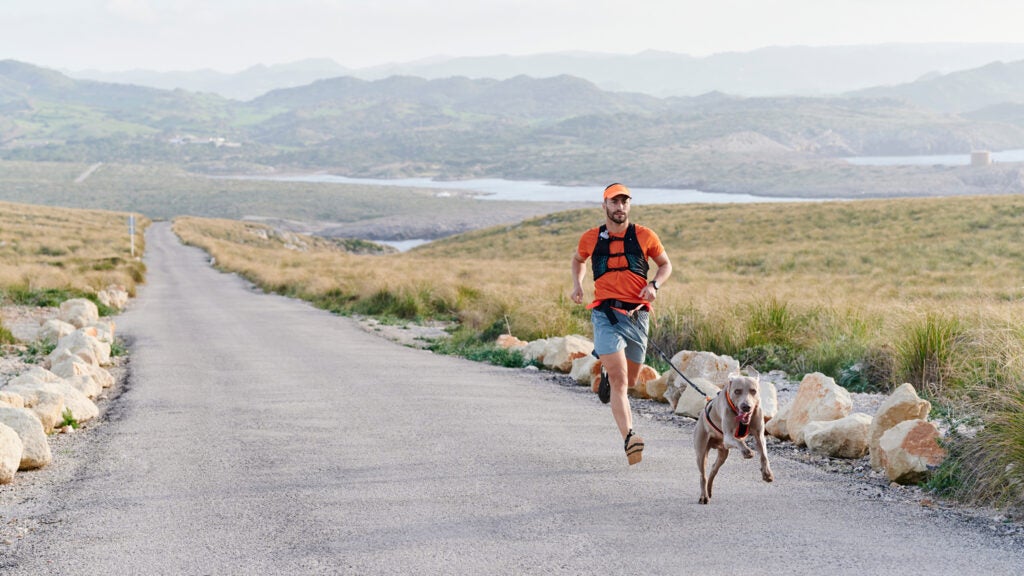No products in the cart.
Outdoor Adventure
The Best Running Shorts for Men (2024)
Summer running can be both amazing (all that daylight!) and challenging (all that sweat!). The right apparel can help you enjoy this special time of year by keeping you cooler and drier while feeling fast and fashionable. We tested 31 pairs of hot weather shorts to find the best for your summer runs.
Be sure to check out our picks for the best running shirts for men, as well.
At a Glance
All gear in this guide was tested by multiple reviewers. If you buy through our links, we may earn an affiliate commission. This supports our mission to get more people active and outside. Learn more.
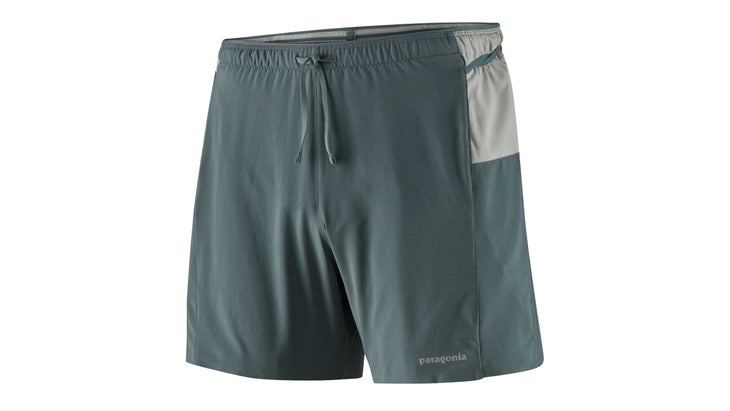
Best All-Around
Patagonia Strider Pro 5” Shorts
Sizing: XS-XL
Pros and Cons
⊕ Comfortable fit and fabric
⊕ Breathability
⊕ Flattering understated style
⊗ Some prefer a shorter inseam in high heat and humidity
Outside’s testers have run in several dozen shorts over the past few years, yet they keep landing on this workhorse as one of the best (it made our list in 2023 as well). “The fabric and tailoring combine to make a short that is coolly comfortable in fit, performance, and style,” tester Jonathan Beverly said. “The waistband has the right thickness and amount of stretch to stay put but not squeeze, the fabric drapes and dries nicely, and the liner is soft and airy without any irritating seams.”
Its just-right qualities extend to the pocketing—with one central rear zip and a stealth slot on each back hip—and to moisture management: only when the dew point was above 70 Fahrenheit did the outer layer get saturated enough to cling. Environmental bonus: Recycled polyester makes up 90% of the garment.
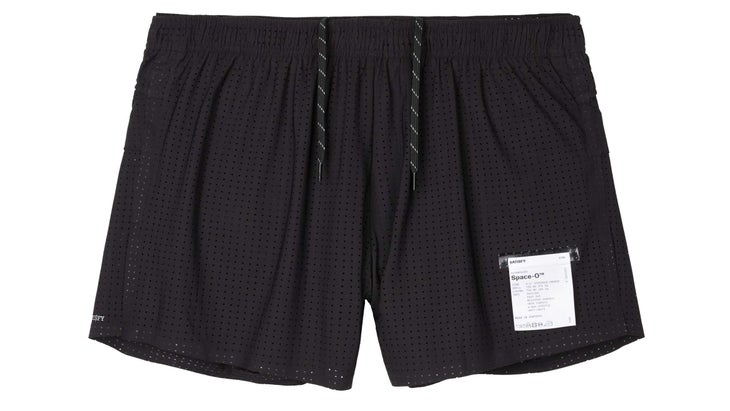
Best for High Heat
Satisfy Space-O 2.5” Distance Shorts
Sizing: XS-XL
Pros and Cons
⊕ Super light
⊕ Great moisture management
⊗ Expensive
⊗ Inseam too immodest for some
Can any pair of running shorts be worth $200? That’s an unanswerable question, given individual differences in finances and disposable-income choices. But if you’re going to splurge, these could be the shorts for you. Early-1980s running boom aesthetics get applied to a 21st-century perforated polyamide/elastane fabric that is uber-stretchy, soft, comfortable, and light. (The shorts weigh just 3.5 ounces.)
The moisture management and abbreviated length made these our go-to shorts in high heat and humidity. They’re also super functional, with a secure and bounce-free internal phone pocket in the back, an expandable fuel pocket on each hip, a waterproof rear zip pocket, and even a small carabiner on the right hip.
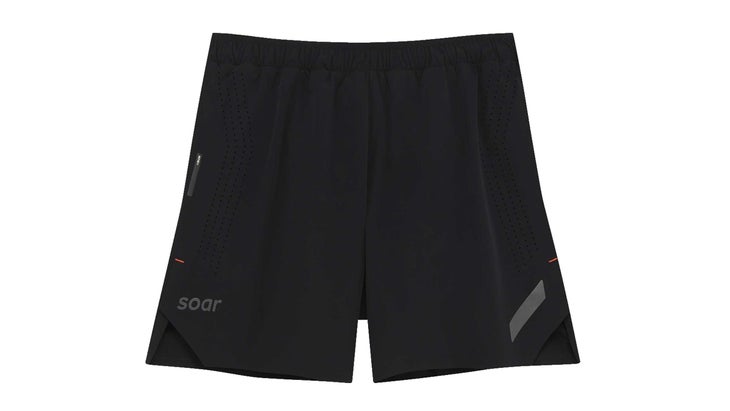
Most Versatile
Soar Run Shorts
Sizing: XS-XXL
Pros and Cons
⊕ Good blend of comfort and performance
⊕ Suitable for most seasons
⊗ Pocket too small to hold a phone
These unassuming, light, ventilated offerings are a good option for your core shorts—that pair you grab throughout the year, for all kinds of runs, because you know they’ll be comfortable and functional. During our summer testing, they especially excelled on hard runs when sweat rates were higher, thanks to their polyamide/elastane blend. The slim, separate waistband keeps everything secure without causing lower-GI-tract distress, which is common when your body has shunted blood from internal organs to the skin to help with cooling.
The 5” inseam strikes a balance between modesty and uninhibited motion. The rear zip pocket is too small for a phone but can simultaneously hold a key, credit card, and gel.
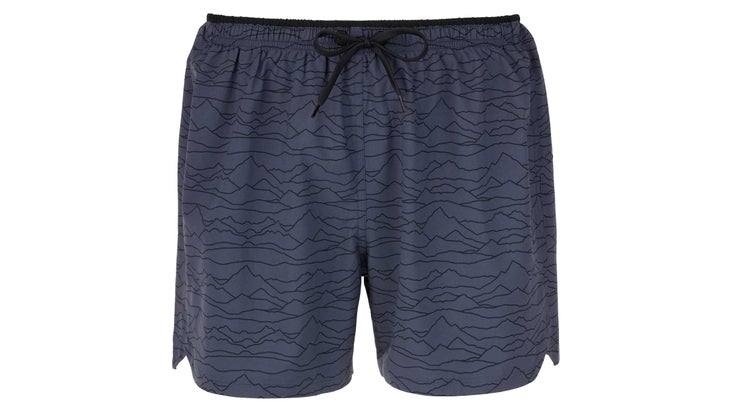
Best Wear-Anywear
Flylow Hawk Shorts
Sizing: S-XXL
Best Wear-Anywhere
Pros and Cons
⊕ Pockets aplenty
⊕ Leisurewear styling
⊗ Bigger fit than some runners prefer
The Flylow Hawk are high-performing, well-pocketed shorts that won’t make you look like a running nerd. “These are officially my new favorite running shorts,” tester Nathan Brown said. “From the comfort of the brief liner to the aesthetics, these shorts ticked all the boxes.”
The polyester/spandex fabric is water-resistant and wicks massive amounts of sweat, provides UPF 40+ sun protection, and allows full range of motion. The back-hip pockets hold fobs and fuel without sagging. The zippered rear pocket accommodates a phone without excessive bouncing. At the same time, they look more like leisurewear shorts than high-performing running bottoms. Our tester often wore them for non-running activities, which isn’t something most of us like doing in most running shorts.
What to Look For in Running Shorts
Running shorts vary in length, liners, pockets, fit, and fabric. You’ll want a length that is short enough for full, unimpeded motion (the faster the run, the shorter and more split the shorts tend to be), but long enough to feel decent on the trail, road, or post-run coffee shop.
Liners range from soft, loose briefs to compression-shorts-like stretchy boxers—or none at all for those who prefer to wear their own underwear. Choosing between liners is a matter of personal taste, balancing breathability and range of motion with level of coverage and control.
Pockets need to be big and secure enough for whatever you want to carry: phone, keys, cards, gels. Location is important to allow convenient access and avoid bouncing and chafing, as is the robustness of the waistband to prevent sagging when carrying anything heavy, like a phone.
When it comes to fit and fabric, as with all summer running gear, you want pieces that breathe, wick moisture, move naturally, don’t stink, and don’t get in the way.
Here are some quick tips on buying the best summer gear without going broke:
- Look for high-quality synthetic fibers. Yes, our top picks include a few items with natural fibers. But for the most part, specially designed varieties of polyester, polyamide, nylon, and the like can handle summer running’s high sweat rates better than wool and cotton.
- Seek sun protection. Even if you run at dawn or dusk, or on trails, sun damage can be insidious. Many shorts and tops come with a UPF coating. Well-ventilated hats reduce squinting while shedding heat. Running tan lines aren’t something to be proud of.
- Check for chafing. If you’ve ever been rubbed raw by a rigid seam or sagging liner, you won’t want to repeat the experience. Abrasion accelerates when you’re drenched in sweat. Look for flat seams, unobtrusive logos, and other elements of construction that will minimize chafing.
- Go with the flow. Our picks in this review strike the right balance between being loose enough to allow cooling air flow but not so billowy that they impede normal running form.
- Banish bacteria. Many high-quality summer running items incorporate an anti-bacterial treatment that greatly reduces nasty odors setting up shop. These pieces not only can be worn many more times before needing to be washed, but also lessen your chance of developing a funky skin situation.
- Invest in quality. It can be tempting to think, “Whatever I run in is going to get soaked anyway, so I’ll just buy the cheapest gear out there.” Such reasoning quickly falls apart when, well, the item itself starts to fall apart because of constant exposure to sweat and frequent laundering. Fewer high-quality pieces that hold their form and don’t hold odors are better than more cheaply made gear that will start disintegrating in one summer.
How We Test
- Number of testers: 7
- Number of shorts tested: 31
- Number of miles run in testing: 3,957
- Highest testing temperature: 97 Fahrenheit
- Highest dew point testing temperature: 78 Fahrenheit
Our testing team ranged across the U.S.—from coastal Maine and western Maryland, to central Wisconsin and the high plains of Nebraska, to the urban bake sites of Chicago and Houston, and, for good measure, the running hub of Eugene, Oregon. All are dedicated runners with average weekly mileage ranging from low 20s to mid 70s. Some have been running for 30 or more years and can compare today’s running apparel to previous attempts to keep runners cool in the summer.
We focused on a subjective combination of moisture management, comfort, versatility, value, and looks to answer a simple question: Of all the apparel you logged summer miles in, which would you be most likely to recommend to fellow runners?
Meet Our Lead Testers
Scott Douglas
I’ve run more than 130,000 miles since starting as a teen in the 1970s, and have always loved how daily runs undergird and elevate the rest of my life. As the author or co-author of several running books and a writer/editor about fitness, I’m fortunate to have my personal and professional lives mesh. I sweat like crazy despite living in Maine.
Here is a portion of the trails Scott Douglas ran on while testing running shorts:
(Gaia GPS is owned by Outside Inc.)
Other testers included:
- Jonathan Beverly, a Nebraska resident who is a senior running gear editor for Outside and has also been running since the 1970s.
- Nathan Brown, a doctor of physical therapy who founded the Pineries Running Lab in Wisconsin.

